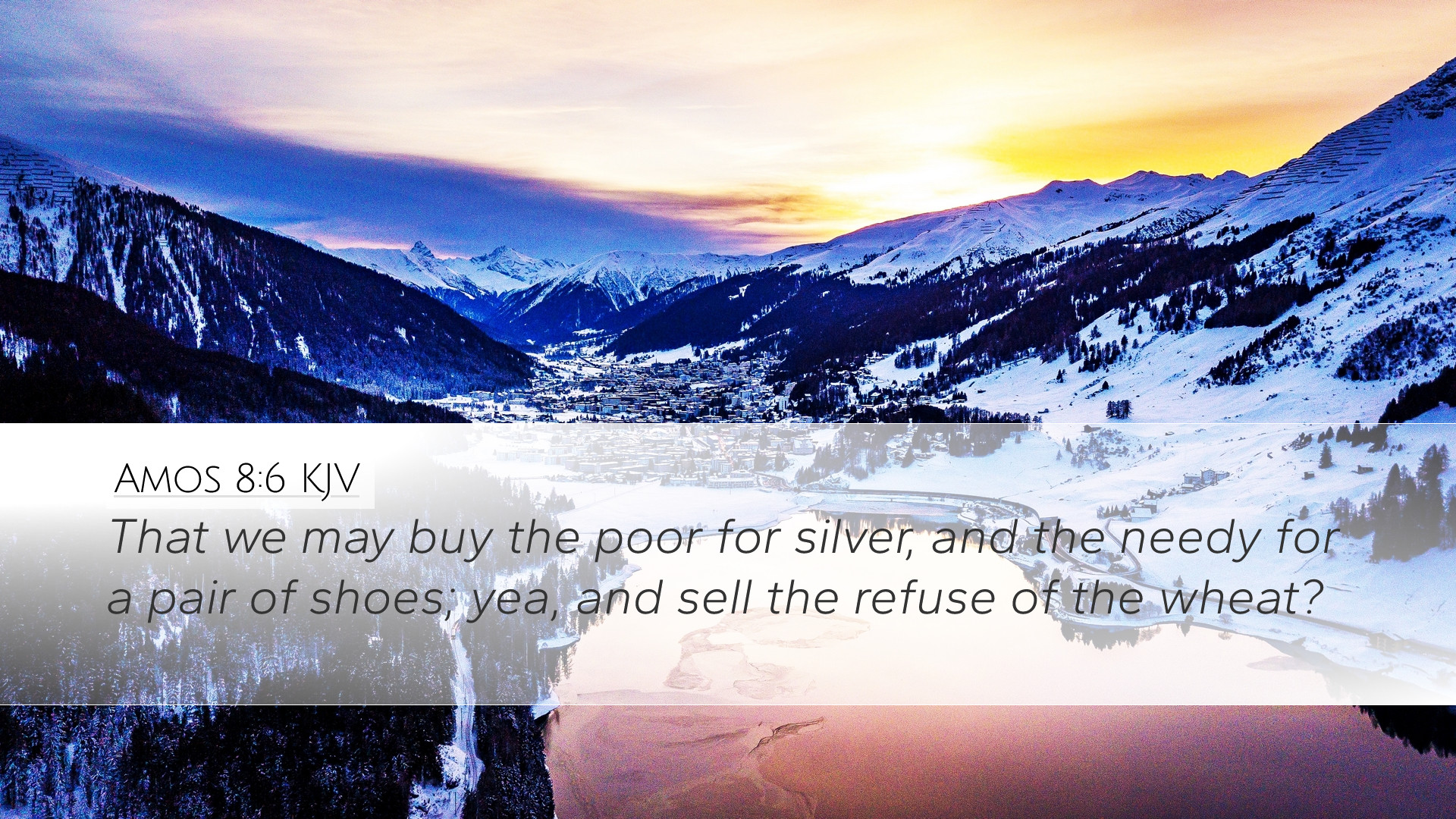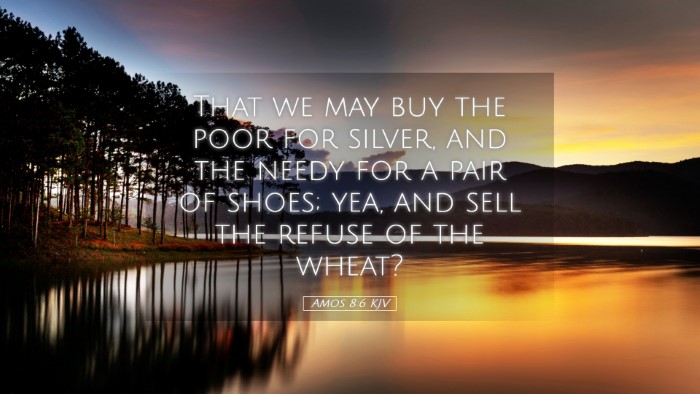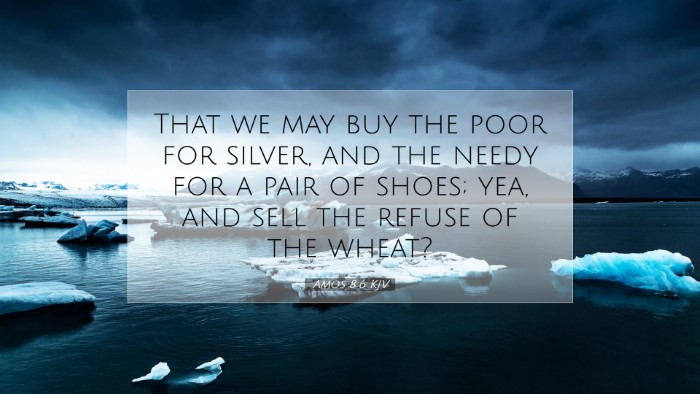Old Testament
Genesis Exodus Leviticus Numbers Deuteronomy Joshua Judges Ruth 1 Samuel 2 Samuel 1 Kings 2 Kings 1 Chronicles 2 Chronicles Ezra Nehemiah Esther Job Psalms Proverbs Ecclesiastes Song of Solomon Isaiah Jeremiah Lamentations Ezekiel Daniel Hosea Joel Amos Obadiah Jonah Micah Nahum Habakkuk Zephaniah Haggai Zechariah MalachiAmos 8:6
Amos 8:6 KJV
That we may buy the poor for silver, and the needy for a pair of shoes; yea, and sell the refuse of the wheat?
Amos 8:6 Bible Commentary
Commentary on Amos 8:6
Verse: “That we may buy the poor for silver, and the needy for a pair of shoes; and sell the refuse of the wheat?”
Contextual Overview
The book of Amos is a prophetic work that addresses the social injustices and moral corruption present in the Northern Kingdom of Israel. Amos, a shepherd and fig farmer, speaks out against the practices of the wealthy elite who exploit the poor and needy. As this particular verse falls within a larger denunciation of these injustices, our exploration must consider how economic disparity and moral decay are criticized throughout the chapter.
Matthew Henry's Insight
Matthew Henry emphasizes the severity of the moral decline of Israel's society. He states, "They are eager to exploit the poor with dishonest gain." The phrase “buy the poor for silver” illustrates the dehumanization present in such transactions, reducing individuals to mere commodities. The reference to footwear—a basic necessity—highlights how the needy may be stripped of dignity in the process of their acquisition. Henry asserts that this behavior is indicative of a society that has turned away from God’s covenantal call to care for the less fortunate.
Albert Barnes' Interpretation
Albert Barnes expands on the economic implications of this verse, noting that the prophecy reflects a period of prosperity for the affluent, juxtaposed with dire poverty for the lower classes. He remarks, "Rather than valuing human life, the wealthy see profit in presenting the poor as a mere resource for their benefit." This mindset is not simply a reflection of individual greed, but a systemic failure of societal ethics. Barnes further argues that the question presented at the end of the verse, “and sell the refuse of the wheat?” showcases the extent to which those in power will go to capitalize on the desperation of the needy.
Adam Clarke's Commentary
Adam Clarke provides a thorough analysis of the cultural significance of the text. He explains that during this time, wheat was a staple, and the emphasis on “refuse” suggests that the rich are so detached from the plight of the poor that they are willing to sell substandard goods to them. "This indicates not only exploitation but a complete disregard for the wellbeing of their fellow countrymen," Clarke states. Furthermore, he points out that the act of purchasing the poor for a price reflects a grave moral failing in the society, where economic gain supersedes compassion.
Summary of Themes
- Exploitation of the Poor: A biblical theme that is underscored by all commentators, highlighting the social injustices of Amos’ time.
- Economic Disparity: The contrast between the riches of the few and the poverty of many serves as a key issue in the prophetic literature.
- Moral Decay: The ethical implications of dehumanizing practices and exploitation reflect a society's departure from God's standards.
- Divine Judgment: The overarching narrative warns against the consequences of social injustice, indicating that God's judgment will come as a response to such wrongdoing.
The Application for Today
This verse resonates with the contemporary church and society, urging a reflection on how systemic inequalities persist. Pastors and church leaders are called not only to preach but to enact justice in their communities. The teachings from Amos serve as a prophetic voice that challenges believers to align their lives with righteousness and social equity.
For students and theologians, Amos 8:6 provides fertile ground for exploring the relationship between faith and socio-economic issues. The text demands rigorous ethical scrutiny and engagement with the marginalized, transcending mere theological reflection into actionable compassion.
Concluding Thoughts
In wrestling with Amos 8:6, we find not only a mirror reflecting the transient conditions of society but also an urgent call to live out our faith in actionable ways. Each commentator, from Henry to Clarke, converges on the critical assertion that faith without works is inert, and our responsibility as believers is to advocate for justice, uphold the rights of the needy, and emulate Christ’s love in tangible means.


